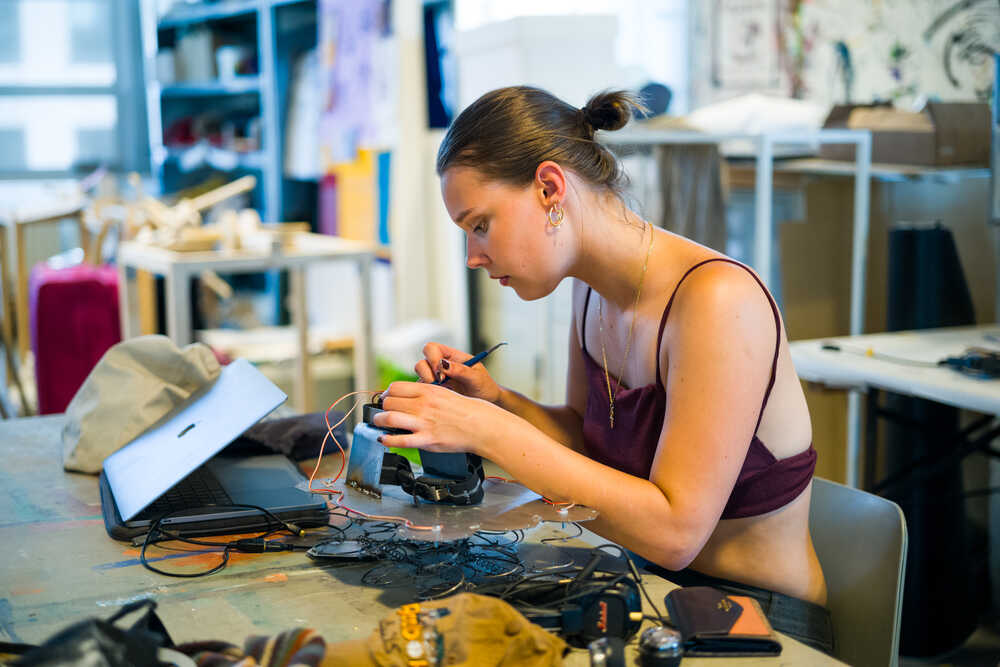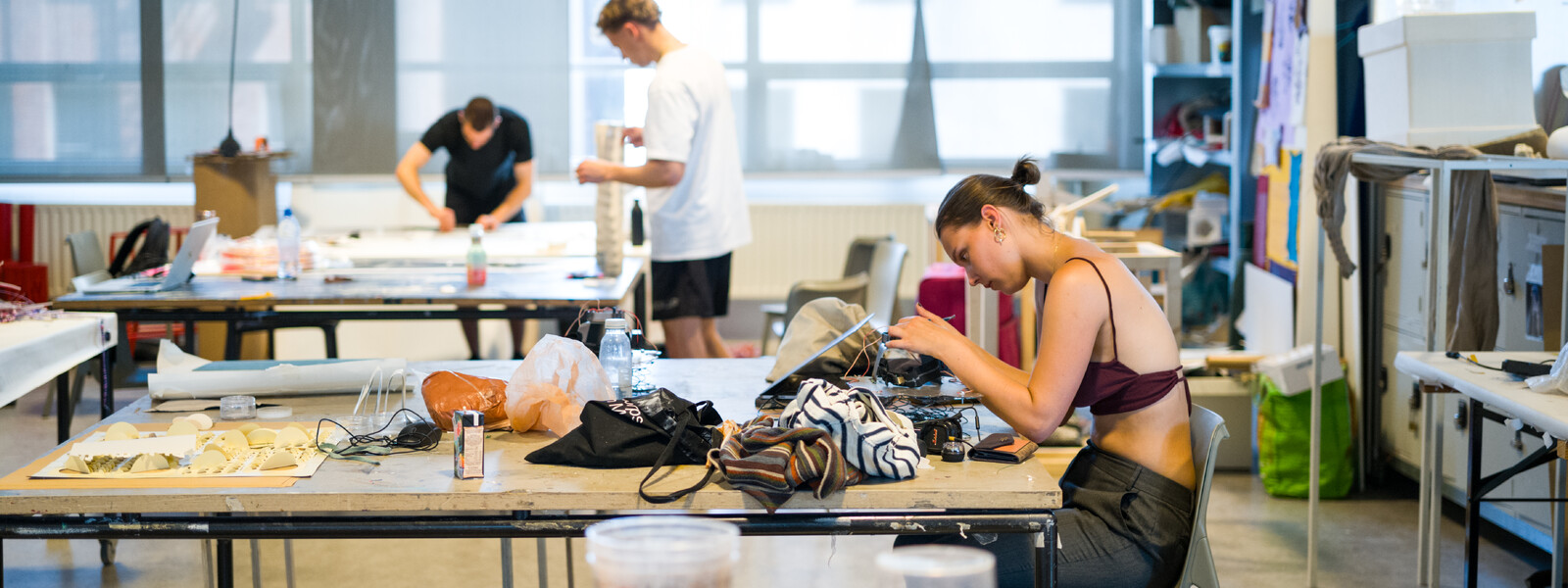Fundamentals Year 2
Semester 1
Design Studies
What will you learn?
You broaden your knowledge of the basic principles of a design process. You combine your research ideas into a ‘personal fascination’ question and explore this fascination from various disciplines. You learn how to work in clear steps and decisions and to document your process. You will translate and materialize your findings into a tangible and communicative outcome.
At the start you learn how to work with four different phases in a design process: research, conceptualization, materialization and presentation. After that you work on the fascination project and choose the tutor you want to be guided by. Each tutor has a different expertise.
Keywords
Artistic research, design research, working methods, time based media, architecture and space, graphic design & 2D image, tactile materials

Production Studies
What will you learn?
You show that possibilities and limitations of materials and techniques influence your choices in the (design)process. You go through divergent and convergent phases which are part of the making process and play with/ control the appearance of a material/ surface. You can visually communicate your thoughts and ideas through making models, drawings, sketches and other media.
In one semester you follow 2 courses. There are 4 different programs to choose from, each of them focusing on one type of material with its specific properties and working methods.
Keywords
Transformation, observation, imitation and interpretation, material, colour, skin and shape, associatively and intuitively, hands-on process, design for movement, material properties, sheet materials, functional products, different production techniques, creative solutions within a strict framework, specific context and user, test models
Contextual Studies
What will you learn?
You learn how to situate and critique your own positionality as a designer, dependent on context. You will summarize and discuss the impact of global structures on design histories and knowledge. You will critically read layered conditions which shape design practices. You understand and point out how these structures relate to (your) design practice.
Keywords
Confronting power structures, towards decolonisation, storytelling, worldbuilding, alternative counter-mapping, dictionary of empowerment, pushing design parameters, critically unpacking, pulling at the roots, imagining otherwise, sense of community, alliances, non-linear narratives, staying with troubles
Semester 2
Design & Production Studies
In semester 2, Design and Production Studies cooperate in a mutual program.
What will you learn?)
Within a given theme you work on a project at the intersection of design and production with a subject of your choice. You develop an individual visual language that fits the outcome of your research. You translate your hands-on research into a design for a realistic context. You communicate with third parties about your design for realisation. You present your design in a communicative way.
Keywords
Material agency, performative aspects of materials, graphic, spatial and social understanding of communication in the 2D- and 3D realm, visual communication in space, hands-on, symbiotic relation between materials and production techniques, experimentation with materials and techniques, curiosity, collaborating with peers, crossovers between different disciplines, positioning and presenting.
Contextual Studies
What will you learn?
You develop a design research question, be guided through practical research methods and consider decolonial alternatives. You develop collaborations with the outside world based on your research interests to encourage meaningful, interdisciplinary knowledge sharing and to expand your network. You learn how to take ownership of your process.
Keywords
Confronting power structures, towards decolonisation, storytelling, research question, personal research methods, collecting, publication, pushing design parameters, critically unpacking, pulling at the roots, imagining otherwise, sense of community, alliances, design collaborations, non-linear narratives, staying with troubles, the self as site of knowledge
